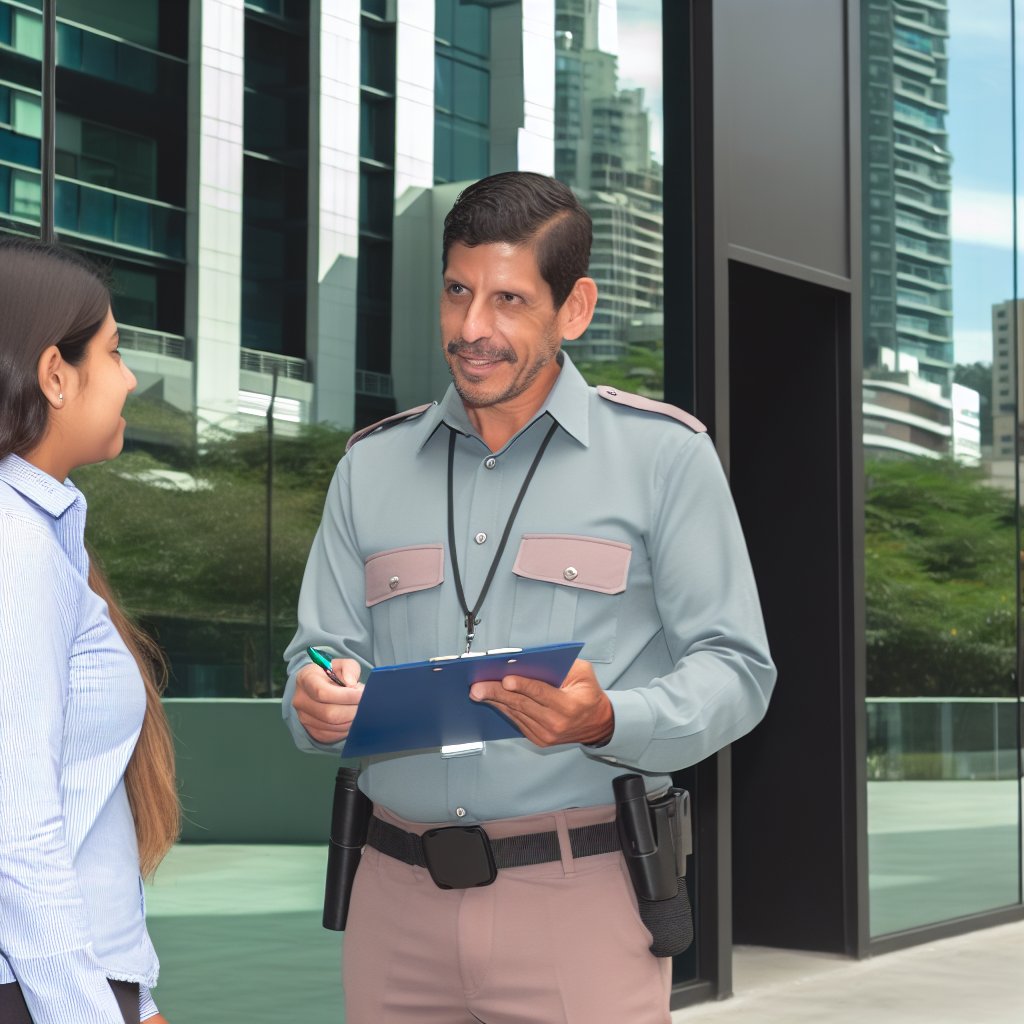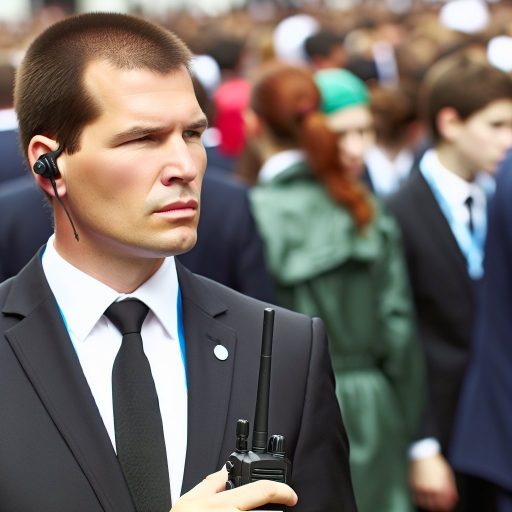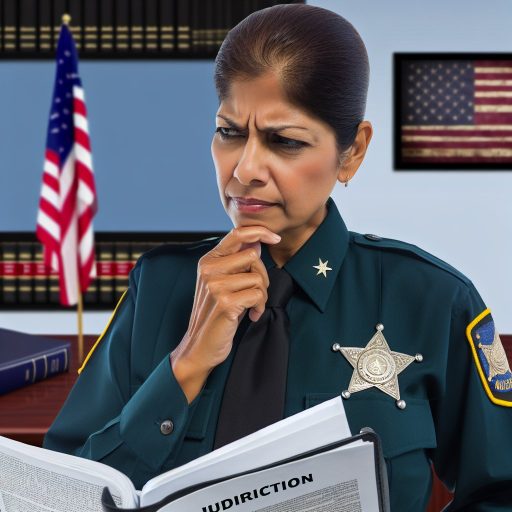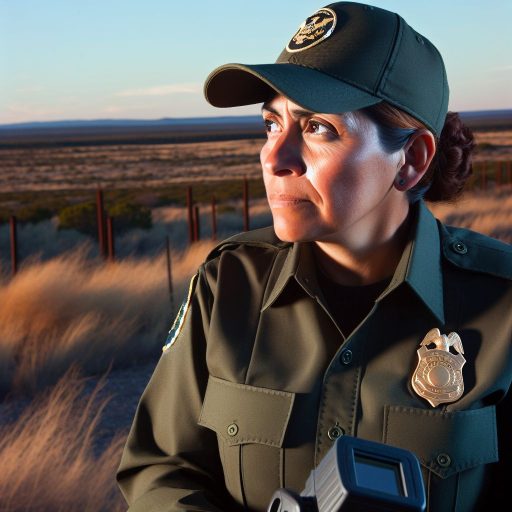Requirements for Aspiring Parole Officers
Being a parole officer involves overseeing and assisting individuals recently released from prison.
Understanding the job requirements is crucial for aspiring parole officers to succeed in this challenging yet rewarding career path.
Key Points to Consider
- Education and Training
- Pass Background Check
- Strong Communication Skills
- Knowledge of Criminal Justice System
- Ability to Assess Risks
- Attention to Detail
- Physical and Mental Resilience
Aspiring parole officers typically need a bachelor’s degree in criminal justice, psychology, social work, or related fields.
Additionally, completing a training program specific to parole officer duties is necessary.
Candidates must undergo a thorough background check to ensure they have no criminal history that could compromise their credibility as a parole officer.
Effective communication is vital in this role, as parole officers must interact with parolees, law enforcement, and other professionals regularly.
Understanding the criminal justice system, including laws, regulations, and procedures, is essential for parole officers to effectively carry out their duties.
Parole officers are responsible for assessing the risks associated with each parolee and making decisions on appropriate monitoring and support measures.
Being detail-oriented is crucial in this role to keep accurate records, identify potential issues, and monitor parolees’ progress effectively.
Dealing with challenging situations and potentially dangerous individuals requires parole officers to have the resilience to handle stress and difficult circumstances.
Education Requirements:
The minimum educational background required to become a parole officer is a high school diploma or GED.
However, many agencies prefer candidates with a bachelor’s degree in criminal justice or a related field.
A degree in social work, psychology, or sociology can also be beneficial for those interested in this career.
Some positions may require a master’s degree, especially for more advanced roles within the parole system.
Training and Certification:
Parole officers must complete a training program, which typically includes classroom instruction and on-the-job training.
Some states may require officers to pass a certification exam in order to become licensed to work in the field.
Ongoing training is often required to stay current on laws and regulations related to parole and probation.
Parole officers may also need to complete continuing education courses to maintain their certification and licensure.
Skills and Qualities:
Strong communication skills are essential for parole officers to effectively interact with clients, colleagues, and other stakeholders.
Critical thinking and problem-solving skills are necessary for assessing risk and making decisions about supervision and treatment plans.
Transform Your Career Today
Unlock a personalized career strategy that drives real results. Get tailored advice and a roadmap designed just for you.
Start NowAttention to detail is crucial for maintaining accurate records and ensuring that clients comply with the terms of their parole.
Empathy and a non-judgmental attitude are important for building rapport with clients and helping them succeed in reintegration.
Physical Requirements:
Parole officers should be in good physical condition, as the job may require extensive walking, standing, and sitting for long periods.
The ability to handle stressful situations and potential confrontations is important for maintaining safety and security while on the job.
Some positions may require officers to carry a weapon, so physical fitness and firearms training may be necessary.
Overall, good health and physical fitness are important for managing the demands of the job and ensuring personal safety.
Training requirements for parole officers are a crucial aspect of preparing individuals for the challenging and rewarding career ahead.
The training process consists of several components that are designed to equip aspiring officers with the knowledge, skills, and competencies necessary to effectively carry out their duties and responsibilities.
Overview of the Training Process for Parole Officers
1. Educational Requirements:
– Individuals aspiring to become parole officers must typically possess a bachelor’s degree in criminal justice, psychology, social work, or a related field.
– Some positions may require a master’s degree, especially for advanced roles.
2. Academic Training:
– Parole officers often undergo a formal training program that covers topics such as criminal justice, law enforcement procedures, case management, ethics, and rehabilitation strategies.
– This academic training provides a strong foundation for their role.
3. Physical Fitness:
– Given the nature of their job, parole officers must maintain a certain level of physical fitness.
– This may involve passing physical fitness tests and engaging in regular exercise to ensure they can handle the demands of the job.
4. Firearm Training:
– Depending on the jurisdiction, parole officers may be required to undergo firearms training to carry a weapon while on duty.
– This training ensures they can effectively handle potentially dangerous situations and protect themselves.
Transform Your Career Today
Unlock a personalized career strategy that drives real results. Get tailored advice and a roadmap designed just for you.
Start NowOn-the-Job Training and Continuous Professional Development
1. Field Training:
– Once hired, parole officers typically undergo on-the-job training where they shadow experienced officers to learn about the day-to-day responsibilities of the job.
– This hands-on experience is invaluable in preparing them for their role.
2. Mentorship:
– Many agencies pair new parole officers with a mentor who provides guidance and support as they navigate their new role.
– Mentors offer valuable insights, advice, and assistance to help officers succeed in their positions.
3. Continuing Education:
– Parole officers are often required to participate in continuing education programs to stay up-to-date on the latest trends, regulations, and best practices in the field.
– This ongoing learning is essential for professional growth and development.
4. Specialized Training:
– Depending on the specific population they work with, parole officers may undergo specialized training in areas such as mental health, substance abuse, domestic violence, or juvenile justice.
– This training equips them to address the unique needs of their clients effectively.
Delve into the Subject: Emergency Management Director: Managing Resource Allocation
Experience Requirements for Parole Officer Job
When it comes to being a parole officer, having relevant experience in criminal justice or law enforcement is crucial.
Here’s why:
- Understanding of the Criminal Justice System: As a parole officer, you will be working within the criminal justice system, so having a background in this field will provide you with the necessary knowledge and skills to excel in your role.
- Handling Offenders: Dealing with offenders can be challenging, and having prior experience in law enforcement can help you understand how to effectively communicate with and manage individuals who have committed crimes.
- Risk Assessment: Evaluating the risk level of parolees is a critical aspect of a parole officer’s job. Previous experience in criminal justice can assist you in accurately assessing the potential risks associated with each individual under your supervision.
Is Previous Experience Required to Become a Parole Officer?
While having prior experience in criminal justice or law enforcement is highly beneficial, it is not always a strict requirement to become a parole officer.
Here are some points to consider:
- Job Training: Many agencies provide extensive training programs for new parole officers to equip them with the necessary skills and knowledge. This training can compensate for the lack of prior experience.
- Educational Background: A degree in criminal justice, social work, psychology, or a related field can sometimes be sufficient to qualify for a parole officer position, even if you do not have prior experience.
- Internships or Volunteer Work: Participating in internships or volunteer opportunities within the criminal justice system can also help you gain relevant experience and make you a more competitive candidate for a parole officer position.
With adequate training, education, and relevant internships, you can still pursue a fulfilling career in this field even without prior experience.
Delve into the Subject: Probation Officer Role in Juvenile Justice System
When it comes to being a successful parole officer, certain skills and qualities are essential for the job.
Transform Your Career Today
Unlock a personalized career strategy that drives real results. Get tailored advice and a roadmap designed just for you.
Start NowThese skills and qualities not only help parole officers effectively carry out their duties but also contribute to the overall success of their clients’ rehabilitation and reintegration into society.
Communication Skills
- Parole officers must possess strong verbal and written communication skills to effectively interact with clients, law enforcement agencies, and other stakeholders.
- Clear and concise communication is crucial for conveying expectations, providing guidance, and ensuring compliance with parole conditions.
- Parole officers must also be adept at active listening to understand the needs and challenges of their clients fully.
- Effective communication helps build trust, foster positive relationships, and promote successful outcomes for clients on parole.
Problem-Solving Skills
- Parole officers encounter various challenges and obstacles in their day-to-day work, requiring strong problem-solving skills to navigate complex situations.
- They must be able to assess risks, identify potential solutions, and make informed decisions to address issues affecting their clients’ rehabilitation efforts.
- Proactive problem-solving helps parole officers anticipate problems, mitigate risks, and create tailored strategies to support clients in achieving their goals.
- Being resourceful and adaptable is essential for parole officers to effectively respond to changing circumstances and evolving needs of their clients.
Critical Thinking Skills
- Parole officers need to possess strong critical thinking skills to analyze complex situations, evaluate information, and make sound judgments based on evidence.
- They must be able to assess the impact of parole conditions, interventions, and support services on clients’ progress and compliance.
- Critical thinking enables parole officers to identify underlying issues, assess potential risks, and develop effective strategies to address clients’ needs.
- It also allows them to evaluate the effectiveness of interventions, adjust approaches as needed, and continuously improve outcomes for their clients.
The combination of communication, problem-solving, and critical thinking skills is crucial for a successful parole officer.
These skills not only help parole officers effectively manage their caseloads but also empower them to make a positive impact on the lives of their clients and contribute to public safety.
Find Out More: What Makes a Good TSA Officer: Key Traits and Qualities
Background Check and Clearance
One of the essential requirements for individuals aspiring to become parole officers is passing a rigorous background check.
This is a critical step in the hiring process to ensure the safety and security of the community.
Necessity of Passing a Background Check
- A background check helps to verify the integrity and trustworthiness of potential parole officers.
- It is essential to ensure that candidates do not have a criminal history that could compromise their ability to perform their duties effectively.
- Background checks are crucial in maintaining the credibility and reputation of the parole officer profession.
Discussing Potential Disqualifying Factors
- Certain criminal convictions can disqualify individuals from becoming parole officers.
- Felonies, violent offenses, and crimes involving dishonesty are usually grounds for disqualification.
- Drug-related offenses or a history of substance abuse could also prevent someone from being eligible for the role.
- Financial mismanagement or a poor credit history may raise concerns about an applicant’s suitability for the job.
- Any indication of unethical behavior or a lack of integrity could lead to disqualification.
Passing a background check is a critical step in the process of becoming a parole officer.
It ensures that only qualified and trustworthy individuals are entrusted with the important responsibility of supervising parolees and promoting public safety.
Gain More Insights: Daily Duties of a Sheriff and Deputy Sheriff

Licensing and Certification Overview
As a parole officer, obtaining the necessary licensing and certification is a crucial step in your career.
This process varies from state to state, so it’s important to be aware of the specific requirements in your area.
Before you can begin working as a parole officer, you must obtain the proper licensing and certification.
This typically involves completing a specific training program and passing an exam to demonstrate your knowledge and skills in the field.
Training Program
- Most states require parole officers to complete a training program that covers topics such as criminal justice, rehabilitation, and community supervision.
- This program may be offered through a local college or university, a law enforcement agency, or a training academy specifically for parole officers.
- During the training program, you will learn about the legal and ethical responsibilities of a parole officer, as well as how to effectively communicate with parolees and monitor their progress.
Exam Requirement
- Once you have completed the training program, you will need to pass an exam to become licensed and certified as a parole officer.
- This exam will test your knowledge of the laws and regulations governing parole, as well as your ability to make sound decisions in challenging situations.
- It is important to study and prepare thoroughly for this exam, as passing it is essential for obtaining a job as a parole officer.
State-Specific Requirements
Each state has its own set of requirements for becoming a licensed and certified parole officer.
It’s important to research the specific requirements in your state to ensure that you meet all necessary criteria.
Educational Background
- Some states require parole officers to have a bachelor’s degree in criminal justice, psychology, social work, or a related field.
- Others may only require a high school diploma or GED, along with relevant work experience in criminal justice or law enforcement.
- It’s important to review the educational requirements in your state and determine what level of education is necessary for becoming a parole officer.
Experience
- In addition to educational requirements, many states also require parole officers to have a certain amount of work experience in the field.
- This could involve working in law enforcement, social services, rehabilitation, or a related area where you can gain relevant experience and skills.
- Be sure to check the experience requirements in your state and assess whether you have the necessary background to qualify for a parole officer position.
Obtaining licensing and certification as a parole officer is a critical step in your career development.
By understanding the specific requirements in your state and completing the necessary training and exams, you can position yourself for success in this challenging and rewarding field.
Job Responsibilities:
Parole officers play a critical role in the criminal justice system by supervising individuals who have been released from prison on parole.
The primary responsibilities of a parole officer include:
- Monitoring and assessing the progress of parolees
- Developing and implementing supervision plans
- Conducting home visits and drug tests
- Providing counseling and referrals to support services
- Enforcing the conditions of parole
- Preparing reports for parole hearings
- Collaborating with other criminal justice professionals
Meeting job requirements is essential for parole officers to effectively perform their duties and contribute to the successful reintegration of parolees into society.
Transform Your Career Today
Unlock a personalized career strategy that drives real results. Get tailored advice and a roadmap designed just for you.
Start NowBy meeting these requirements, parole officers can:
- Ensure the safety of the community by closely monitoring parolees
- Help parolees successfully transition back into society by providing support and resources
- Promote accountability and adherence to parole conditions to prevent reoffending
- Conduct thorough assessments to identify risks and needs of parolees
- Build trust and rapport with parolees to facilitate positive behavioral change
Parole Officer Job Requirements
Being a parole officer requires a unique set of skills and qualifications.
Most importantly, individuals interested in this career path must have a bachelor’s degree.
The degree should be in criminal justice, psychology, social work, or a related field.
Experience working with offenders or in law enforcement is highly valued.
Parole officers must have excellent communication skills to interact with diverse populations.
They should be able to assess and evaluate individuals’ behavior and risk factors.
Attention to detail is crucial when keeping accurate records of offenders’ progress.
Problem-solving skills are necessary to handle difficult situations that may arise.
Being able to work in a fast-paced and unpredictable environment is essential.
Parole officers must be able to work independently and make decisions confidently.
They should be empathetic yet firm when dealing with offenders to promote rehabilitation.
Importance of Job Requirements
Understanding the job requirements for aspiring parole officers is crucial for success in this career.
Individuals interested in pursuing a career as a parole officer should research further and prepare accordingly.




